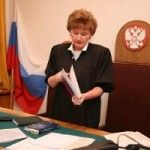Enforcement of Foreign Court Judgments in Russia: Reciprocity as a Separate Basis
 Recognition and enforcement of foreign judgments in Russia remains a grey area, because according to the Arbitrazh Procedure Code foreign judgments may be enforced on the basis of a federal law or an international treaty.
Recognition and enforcement of foreign judgments in Russia remains a grey area, because according to the Arbitrazh Procedure Code foreign judgments may be enforced on the basis of a federal law or an international treaty.
There is no generally applicable law providing for the enforcement of foreign judgments and there are few international treaties (particularly with Western European and North American states) providing for recognition and enforcement of judgments.
In a recently published ruling the Moscow Circuit Court confirmed a lower court’s decision to enforce several orders of the English High Court and recognise (without enforcement) the judgment of the High Court in the same case (case no. А40-119397/11-63-950).
The decision was based on several multilateral agreements between EU states and the Russian Federation, which the court held implicitly required enforcement of judgments of EU courts, as well as the general international law principle of reciprocity (international comity).
There are still decisions going both ways: for example several years ago the Moscow Circuit Court refused to enforce US and Israeli judgments citing lack of treaties with those states. But case law where foreign judgments are enforced despite the absence of a bilateral treaty specifically providing for their enforcement is building up.
During the past 10 years the Moscow Circuit Court has upheld the enforcement of English High Court judgments on at least two other occasions and in 2009 the Supreme Commercial Court refused to rehear a case where a Dutch judgment was enforced on the basis of reciprocity.
Facts
In October 2010 Boegli-Gravures S.A. applied to the Moscow Commercial Court for an order for the recognition of a judgment of the Patent Court of the Chancery Division of the High Court. It also requested recognition and enforcement of several orders of the same court as well as from the Court of Appeal dealing with costs.
In February 2012 the Moscow Commercial Court decided to grant this application.
Enforcement of this order was suspended pending appeal of the respondents to the Moscow Circuit Court, because the applicant was a Swiss company without known assets in the Russian Federation and therefore the Moscow Circuit Court decided this would have made reversal of enforcement extremely burdensome for the respondents. However on 12 April 2012 (approximately five months after the application was lodged) the Moscow Circuit Court dismissed the respondent’s appeal and confirmed the lower court’s judgments.
Commentary
The Moscow Circuit Court relied on several grounds to recognise and enforce the judgment and orders in question.
First, it held that foreign judgments may be recognized in Russia on the basis of the 1988 Decree of the Presidium of the Supreme Soviet of USSR (where enforcement is not requested).
Second, it went on to note the provisions of the 1992 partnership agreement between the Russian Federation and UK and 1994 partnership agreement between the Russian Federation and the European Communities both of which guarantee non-discriminatory access to court.
The Convention for the Protection of Human Rights and Fundamental Freedoms (European Convention) recognises enforcement of court judgments as part of the right of access to court. Hence, the Moscow Circuit Court reasoned that these international treaties implicitly provide for recognition and enforcement of foreign court judgments.
Finally, the court noted that recognition and enforcement of foreign court judgments is mandated by the general international law principle of reciprocity even where there are no treaties. Importantly the court observed that what was necessary was that the laws of the foreign state in question permitted enforcement of Russian judgments (as opposed to it being necessary for there to be evidence of actual enforcement).
The decision of the Moscow Circuit Court has potentially wide-ranging implications first and foremost because it reinforces the “pro-enforcement” stance of Russian courts towards foreign court judgments. Among other things this gives further arguments to those seeking enforcement of Russian judgments abroad on the basis of reciprocity.
However, uncertainty remains. The practice favouring the enforcement of foreign judgments in the absence of an international treaty comes mostly from the Moscow Circuit Court and a single ruling of a three-judge panel of the Supreme Commercial Court (as opposed to the full Presidium). This calls for caution.
Indeed, it is notable that IPO prospectuses of Russian companies continue to warn investors that foreign court judgments are not generally enforceable in Russia, while noting that there have been instances where they were enforced. Perhaps it is time for the Russian legislator or the Supreme Commercial Court to weigh in and bring certainty into this area.
Sergey Usoskin











